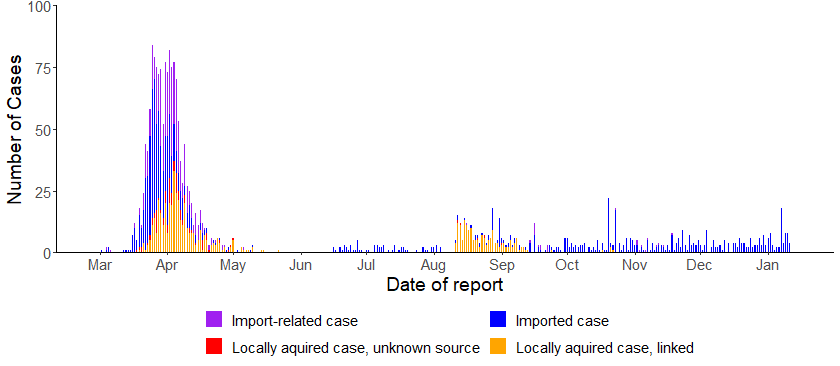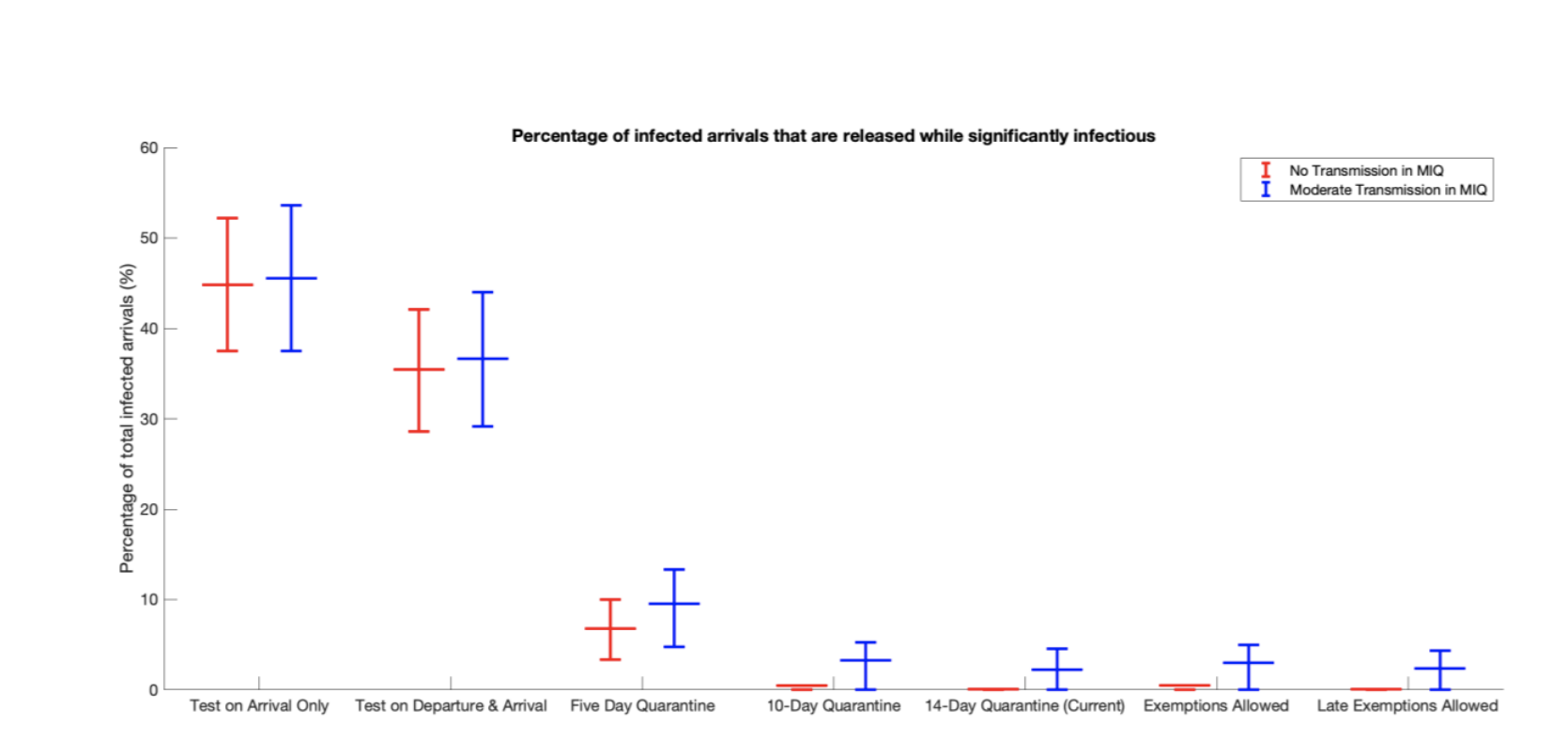A key question for people figuring out good longterm isolation practices is "how long do I have to be symptom-free before I'm 'certified safe'?"
This post on the typical-course-of-COVID-19 provides some studies that inform on the question, but doesn't directly answer it yet.
I recall hearing something like "most cases last less than two weeks", but I'm not sure if two weeks is actually a strong enough upper bound that I'd feel comfortable encouraging lots of people to act on it.
This contains two subquestions:
- If you get sick with COVID-19, during what period will you be contagious?
- If you are isolated, and don't appear to have symptoms, how long before you can be confident that you are not a carrier?
(I'm personally most interested in the answer to the second question right now, but both seem important)


Since apparently some confirmed cases never develop symptoms (this study of Diamond Princess passengers estimates 18%), it seems the answer to your second question is "never"?
Sorry, I worded that wrong. Edited the OP.